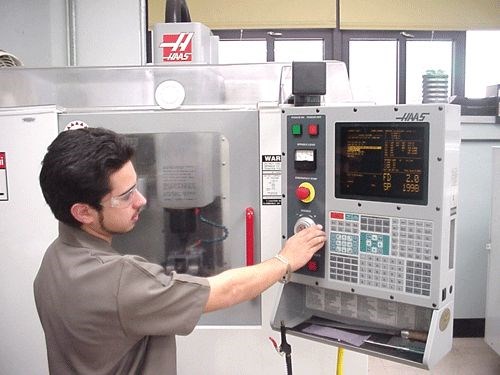Are Manufacturers Doing Enough to Meet Staffing Needs?
(Photo courtesy of East Leyden High School, Franklin Park, Illinois.) When MMS published this article describing manufacturers’ difficulty with finding qualified staff, nearly all of the negative feedback I received came from Michigan.
Share





ECi Software Solutions, Inc.
Featured Content
View More
Takumi USA
Featured Content
View More

.png;maxWidth=45)
DMG MORI - Cincinnati
Featured Content
View More
(Photo courtesy of East Leyden High School, Franklin Park, Illinois.)
When MMS published this article describing manufacturers’ difficulty with finding qualified staff, nearly all of the negative feedback I received came from Michigan. In fact, only the Michigan respondents identified their location, so maybe every bit of it came from Michigan.
A common theme was the frustration with established U.S. manufacturers. To be sure, the shortage of technical personnel described in the article is more significantly a problem in the future than in the present—owing to the fact that there aren’t enough young people entering manufacturing to replace the Baby Boomers yet to retire. Still, some see even this challenge as a problem of the manufacturers’ own making. One is Constantine Kortesis, programs chairman for the Society of Manufacturing Engineers’ Chapter One. Here are some of his comments:
“When Henry Ford needed skilled workers, he established what later became the Henry Ford Trade School. When General Motors needed manufacturing and product engineers, GM established the General Motors Institute in Flint, Michigan. When I was in high school, Electric Boat, now a subsidiary of General Dynamics, used to hire high school co-op students into mechanical drawing, welding and machining apprenticeship programs. The students were paid real wages, too—today's equivalent of around $18 per hour, which is not bad for high school.”
Mr. Kortesis points out that large manufacturers today generally do not make that kind of commitment to employee development. Yet some small shops do.
“I serve on several academic advisory boards in the Detroit Metro area. In a couple of the ‘skilled trades’ high school programs, we get support from local machine shops and fabricating shops that actually do hire co-op students and provide the schools with raw materials, surplus tooling and cash, because the shop owners know the score. These are not huge corporations. These are shops with owners who literally worked up through the ranks. The shop owners tell me that they are ‘proud to pay taxes’ and even believe that we need tax increases to support education and manufacturing in the U.S. These shop owners don’t take home million-dollar pay packages. They net roughly the same annual income as any good skilled tradesmen or manufacturing engineer, and maybe a very little bit more, for the same amount of effort.
“So, when manufacturers claim that they can’t find qualified people in the U.S., ask them to put their money where their mouth is. Ask them how much they are spending to educate their workers. Ask them how many co-op students they have hired. Ask how many employees they have put through college.”



































